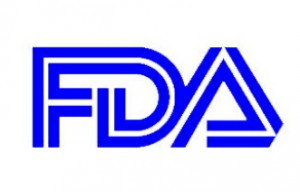The FDA just released final guidance for companies that use nanotechnology in food products. The government’s recommendation is that companies consult with the agency before taking products to market, and also tells companies that nanotechnology-enhanced products may require additional safety review.
 Center for Food Safety thinks that the FDA needs to take a more active approach overseeing these products. Jaydee Hanson, senior policy analyst for CFRS said in a statement, “under these guidelines, companies will consult with the FDA but the FDA will not review products for safety. Guidances alone are not sufficient to account for the novel risks of nanotechnology. FDA must issue mandatory regulations.”
Center for Food Safety thinks that the FDA needs to take a more active approach overseeing these products. Jaydee Hanson, senior policy analyst for CFRS said in a statement, “under these guidelines, companies will consult with the FDA but the FDA will not review products for safety. Guidances alone are not sufficient to account for the novel risks of nanotechnology. FDA must issue mandatory regulations.”
Current products will not be allowed through the fast-track GRAS (generally regarded as safe) process. But the government did not say that nanochemicals will never be added to the GRAS list. Hanson added, “we know far too little about the human health and environmental aspects of this technology to allow it to slip into our food without rigorous assessment.”
Nanoparticles are extremely tiny particles that are used in foods, dietary supplements, cutting boards, plastic containers, and sandwich bags. They are also used as food additives, flavor modifiers, and preservatives through nano antimicrobials. They can get into your body through inhalation, ingestion, and skin penetration.
Because they are so small, nanoparticles can potentially reach organs such as bone marrow, the spleen, the brain, the heart, lymph nodes, and the liver. Clean Food Organic, published in Friends of the Earth, has stated that nanotechnology is governed by quantum mechanics, which means that chemical reactivity and toxicity of nanoparticles can be very different from larger particles of the same substance.
Toxicological literature does suggest that nanoparticles are “more reactive, more mobile, and more likely than larger particles to be toxic to humans and the environment”. Preliminary scientific research has shown that “many types of nanoparticles can result in increased oxidative stress which can result in the formation of free radicals that can lead to cancer, DNA mutation and even cell death,” according to the article. In addition, carbon nanoparticles cause brain damage in largemouth bass, a species that is a model for defining ecotoxicological effects.





Once again, the FnDA allows companies to unleash substances on the American people, without having a clue what these things can do to our health and safety… and they don’t care either, as long as there are profits to be made. We are nothing more then lab rats for the industries that seem to be in control.